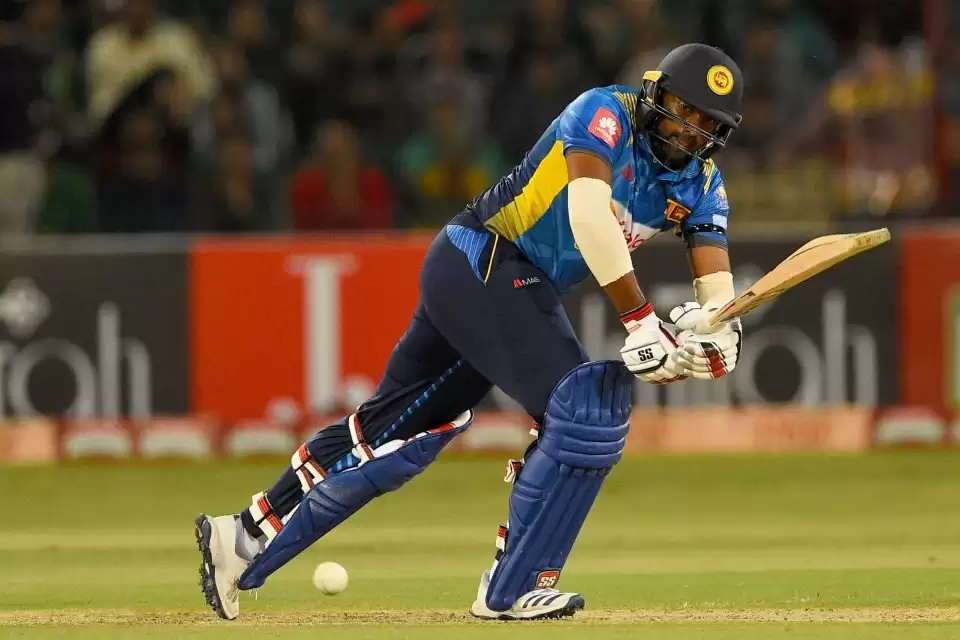
Sri Lanka Cricket (SLC) has opted a new physical mechanism, with financial penalties imposed on underfit players.

In a big relief for the likes of Bhanuka Rajapaksa, who found themselves in a tiff with Sri Lanka cricket’s board over fitness issues earlier, the SLC has gone soft on its longstanding pre-series policy and done away with the mandatory fitness tests. The board has instead decided to implement financial penalties for underfit stars.
A report in the Lanka-based ‘The Sunday Times’ stated that while a skinfold test was conducted on all players selected ahead of the T20I series against Australia, achieving success in a thorough fitness test was not compulsory and will not be henceforth.
Comeback men Bhanuka Rajapaksa, Wanindu Hasaranga and Danushka Gunathilaka all reported skinfold – body weight – test numbers in excess of the minimum 85 mm benchmark, with Rajapaksa, stated the newspaper, recording a “shocking” value above 106 mm.
These skinfold tests were supposed to precede a round of fitness tests on the players but the SLC, surprisingly, decided to do away with the longstanding process.
“SLC’s trainers have only conducted a skinfold test and no time trial has been done to see whether they are in with required fitness level to play international cricket,” mentioned a report from the Sunday Times.
Instead of slotting the players in the ineligible category if they fail the fitness test, the SLC has now opted to impose financial penalties if they enter the field underfit.
“A failed fitness test no longer makes players ineligible for selection as Sri Lanka Cricket (SLC) has now introduced a financial penalty mechanism to deal with those taking fitness lightly,” the report said, stressing how the change in policy has led to Rajapaksa’s comeback after missing Sri Lanka’s recent assignment for weight and agility issues.
Thus, despite giving a body fat test in the negative, Rajapaksa took the field for the T20Is versus the Aussies, a few weeks after turning up in the IPL 2022 for Punjab Kings (PBKS).
SLC depends on local IPL 2022 coaches for Sri Lankan players’ fitness standards
The report from the Sunday Times also unveiled that the SLC allowed its white-ball specialists to play the IPL with a “condition” to follow the local coaches and fitness specialists provided by their respective IPL franchises. Rajapaksa, playing for PBKS, was told to adhere to the physios and dieticians that the franchise had on board.
“One condition we (selectors) laid down was to have assessed their fitness levels periodically. We asked the local trainers to provide these players with tailormade programs for each individuals to be followed during the IPL. They were to be monitored by the trainers at IPL teams and report to us. I don’t think this has happened,” chief selector Pramodya Wickremasinghe said when asked to divulge whether Sri Lanka had any fitness mechanism in place of its own?
Wickremasinghe claimed that the IPL franchises’ fitness staff didn’t report the players’ fitness standards to the SLC authorities, which led to the inclusion of some overweight players into the Aussie series despite exceeding the skinfold test marks.
“If it had been the case in the past, the local trainers would have noticed the increased skinfold levels of these two (three – including Wanindu Hasaranga and Danusha Gunathilaka) players and attended immediately. But this has not happened and we only got to know this after the team was selected for the Australia tour,” he added.
Wickremasinghe shed light on why, in such circumstances, did the board shelve the fitness test or allow players to take the field without a successful test? “We took this challenge of setting fitness standards a year ago and it had an impact on performance. However we also attracted lots of criticism forgoing hard at the players. But we did it with good intention,” he said.
“However we do not handle this anymore as it has now been transferred to the coaching department. So it’s their responsibility to make sure the players achieve required fitness levels which are non-negotiable.”
Leaving the onus on coaches to identify underfit players, the SLC has implemented a new system. Under this one, the Sunday Times said, 20% of the money will be deducted on a pro-rata basis from the players’ contracts in case they arrive without achieving an acceptable level of physical state for an international cricketer.
On successive offences, a player will be liable for cuts upto 40, 60 and 80% of his retainership fee. “Fitness benchmarks which have been incorporated into player contracts allow SLC to terminate an agreement if a player fails three consecutive fitness tests conducted on a quarterly basis.”
SLC CEO Ashley de Silva said: “These heavy penalties will deter them from taking fitness lightly. When certain players were dropped on fitness ground, the selectors were put under tremendous pressure by various quarters. This is why we’ve introduced heavy penalties.”
The SLC has taken a unique route to have things its way with the players. The board is hoping to overcome all the criticism coped for a year for making the fitness test mandatory and applying stricter guidelines but while still ensuring the players don’t take the field underfit. The fitness test may no longer be mandatory but the financial penalties, SLC hopes, will force players to put in work on their physical being, with the skinfold test in place to measure acceptable weight.
Rajapaksa, finding relief for the Aussie series, will have to soon achieve the minimum skinfold test benchmark or face heavy retainership fee cut. The player had earlier taken premature retirement from international cricket, feeling miffed over the cricket board’s emphasis on fitness standards, before he made a u-turn following discussions with Sri Lanka’s government officials, who have a voice of influence in the cricketing circuit.